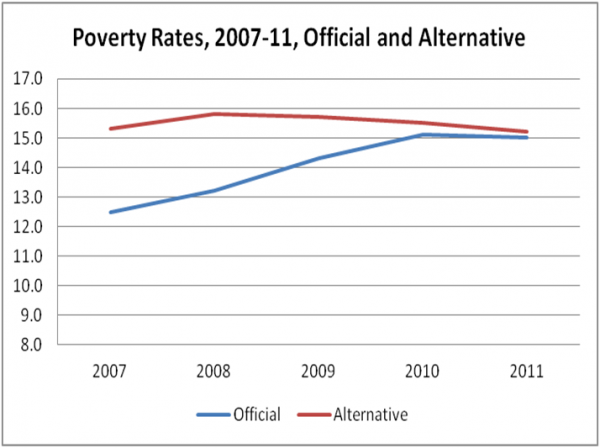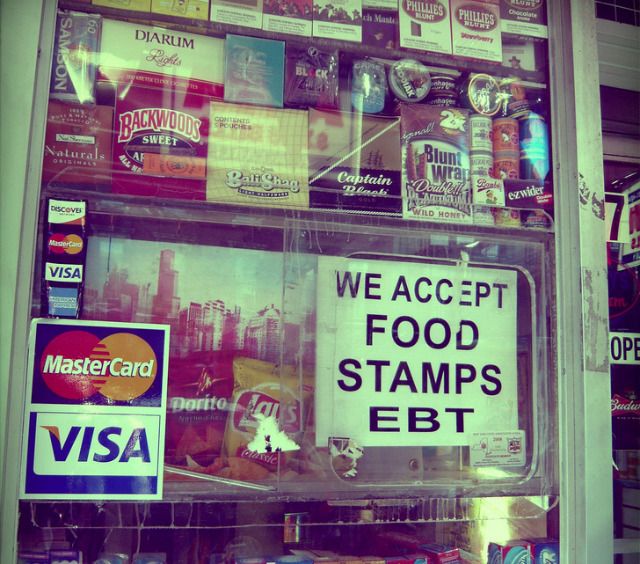Last week, former Obama administration economist Jared Bernstein posted a somewhat celebratory graph showing that the poverty rate, when measured to include government assistance programs like food stamps and the Earned Income Tax Credit, remained just about constant throughout the Great Recession.
University of Chicago economist Casey Mulligan, drawing from a recent working paper, rejoined that this is a terrible thing. In order for the poverty rate not to rise, Mulligan argued, the federal government must have been replacing all the income lost by the unemployed with government benefits. Such a 100 percent tax rate on working — why work when you can get government benefits for free, the argument goes — “erases” incentives, which is “not the way to a civilized society but rather to an impoverished one.”
I’ll let people much smarter than I challenge Mulligan’s model of job seeking and taxation. But recent evidence suggests that the benefit of the safety net extends well beyond merely replacing income. A recent working paper from the National Bureau of Economic Research, for instance, finds that having access to food stamps as a child reduces the incidence of obesity, high blood pressure and diabetes in adults. It also increases economic self-sufficiency in women.
This is a crucial finding about the safety net because it “raises the possibility that policies targeting early childhood may be suboptimally small. In other words, the [Food Stamp Program] generates larger private and social benefits when taking into account the ‘multiplier effect’ on later-life outcomes.” In essence, the study suggests that there are good reasons for government safety nets beyond just keeping people’s income above a poverty line.

The poverty rate remained constant throughout the recession. Credit: Jeffery Bernstein
In a week in which Newark Mayor Cory Booker has been living on food stamps, the benefits of programs that “merely” keep people’s income above the poverty line should be stressed.
The psychological effects of poverty can be significant and expansive. It is very likely that Booker hasn’t been doing as good a job as mayor this week as in the past. This is simply because he has likely been devoting much more time to thinking about how to eat than about how to govern his city. (His hugely popular Twitter feed, now filled with references to beans, bears this hypothesis out.)
Recent research in behavioral economics, particularly that focused on poverty in the developing world, is investigating exactly this phenomenon in order to understand why some poverty alleviation measures work and why some do not. In the past, the behavioral consequences of poverty — for instance, not using a savings account that has been offered for free — might have been called behavioral failures. But now these are seen as failures of policy design, not as failures of poor people.
In expressing horror that the Supplemental Security Income program at times incentivizes parents to keep their students from learning to read, the Nicholas Kristof op-ed which gained so much attention for its strange attack on the safety net (particularly strange given Jared Bernstein’s chart) mistook a poorly designed policy intervention for a failure of the safety net. The conclusion to be drawn from Kristoff’s tale is that the policy is poorly designed, not that the safety net is unnecessary or even perverse.
It is strange to be defending the safety net and reiterating the ills of poverty just as the effects of a recession are fading. But at least now the evidence is growing that the safety is working and providing lasting benefits.
















